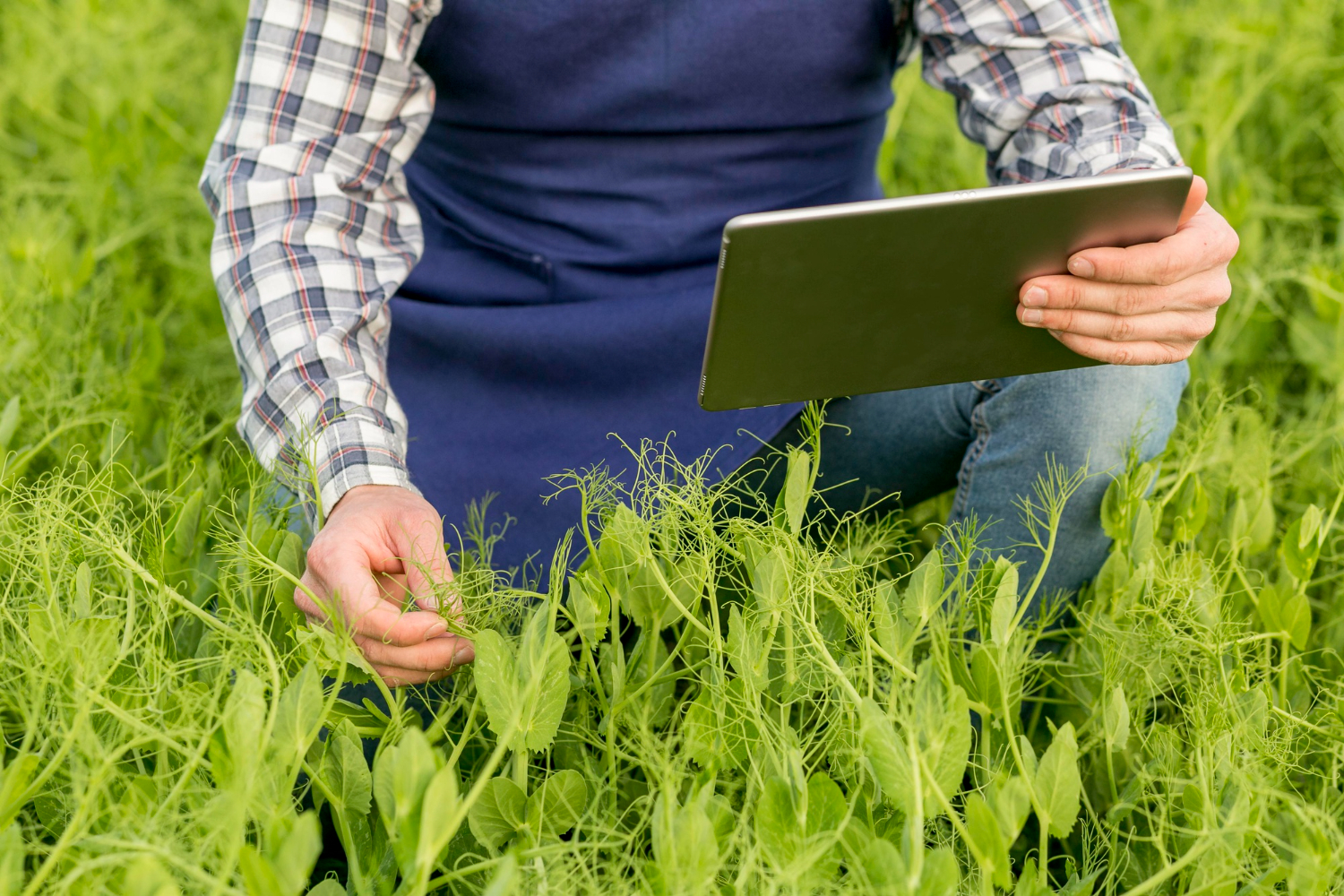Agriculture is an industry that feels like it hasn’t experienced much change over the decades. It’s as if farmers are impervious to time, simply going about their business the way they always have. We picture them as rugged, hard-working people who wake up at the crack of dawn and work until sundown to turn a profit. But is this perception or reality?
Farming has undergone quite the revolution to modernize and streamline its operations while minimizing its environmental impact. This “revolution” has been brought about by the spirited innovation of start-ups, many of which are employing cutting-edge technologies to ease the burden of farming and help farmers become more efficient and profitable.
While many companies have enhanced the efficiency and productivity of the agriculture sector, eight start-ups have ushered it into the 21st century. Each has elevated the agricultural sector and tackled many of the industry’s environmental concerns head-on
SOSBio: Developer of Organic Fertilizer
The chemicals associated with farming are often harmful to the environment and the health of consumers. SOSBio is the manufacturer of a microbial-based, organic fertilizer designed to make organic farming more affordable for the average person. Anyone who has visited a banana stand at a grocery store and noticed the price difference between bananas and organic bananas can appreciate this mission.
Their fertilizer is made of organic pellets and proprietary bacteria. It can be used on a wide variety of plants and is known to improve the health of soil and is beneficial to the environment. All of this comes at an affordable price.
IRRIOT: Eliminating Water Scarcity Through Wireless Irrigation
IRRIOT launched an IoT wireless irrigation solution to remove expensive in-field wiring. It utilizes solar powered watering stations that are environmentally conscious and require no maintenance.
This system combats water scarcity — which affects 33 per cent of the global population — helps feed more people, and takes care of the planet through water-saving measures.
Dahlia Robotics: Removing the Need for Herbicides
The autonomous robots engineered by Dahlia Robotics patrol fields to identify and remove weeds. This seems to have a practical residential purpose — who wouldn’t want this for their backyard? — nonetheless, this technology has pushed the farming industry forward in exciting ways.
The robots are equipped with artificial intelligence to ensure they don’t damage the crops. The start-up’s true benefit to farming and consumers is the elimination of herbicides while providing access to more sustainable farming practices. Dahlia’s goal is to evolve their robotic technology so that it can detect pests, diseases, lack of nutrients, weather damage, and much more.
CropX: Soil Data in Real-Time
Historically, agriculture has had its fair share of shortcomings. One such shortcoming is accurate soil data that can be compiled in real time. Enter CropX, a start-up which has brought to the market a platform equipped with a proprietary soil sensor that provides farmers with relevant data. This precision agricultural technology is designed to safeguard crops, improve their yield, reduce the amount of water needed, and, generally, keep a farm running smoothly.
Farmwise: A System for Greater Food Production
Farmwise develops systems and processes to help farmers enhance and streamline their operations and, in effect, create greater efficiencies for food production.
Farmwise’s data-driven solutions leverage plant-level data to dictate field actions with greater precision. This is important for vegetable farmers whose costs, regulatory pressure, and associated environmental concerns have all increased over the years.
The technology will provide much needed relief to farmers who constantly worry about their yield and the efficiency of their operations.
Artemis: A Platform to Manage Farming Operations
Artemis offers farmers a Cultivation Management Platform (CMP) to manage plants, people, operations, processes, and compliance, all in one place.
Artemis also benefits the sector by expanding traditionally thin margins and giving farmers greater control over their productivity. This allows them to simplify, streamline, and find gaps in their productivity. It even provides the option to monitor and manage remotely, delivering flexibility to a sector that has long been considered too rigid to evolve.
Apeel Sciences: Technology to Create Abundance
Apeel Sciences’ goal is to reduce food waste to create an abundance of food for everyone. This might sound far-fetched; however, Apeel uses nature’s technology to grow produce that can last longer. This can lower food waste across the entire chain that ranges from growers to retail stores and even includes consumers.
The long-term reward of the work done by Apeel is far-reaching, and its benefits are incalculable. Less food waste can lessen the burden placed on the environment to produce the amount of food needed to feed the global population.
Infarm: A Network of Urban Farms
Urban farms might sound like an oxymoron, but they are a big part of farming’s future. Urban farms are excellent for the environment and keep consumers close to their food, fostering more appreciation for what we eat. Infarm is a rapidly growing urban farm network that grows a variety of produce year-round with no chemical pesticides.
Essentially, these farms are climate machines, each with an ideal climate based on the crop. They also collect real-time data to show how the farms respond to the smallest environmental change.
More Changes Coming to Modern Farming
The image of a farmer with a big hat and till is long gone. Start-ups have taken the industry by storm and made an indelible mark on the farming industry. Through technologies, many of which are only scratching the surface of their potential applications, these companies are upending the old agricultural systems to create a more efficient, user-friendly, environmentally conscious, and, ultimately, more productive industrial farming method.
It’s safe to assume that this is only the start of the agricultural revolution. More gains can be made to lower the environmental impact of the farming industry to increase overall operations and ensure that healthier and affordable food can be served in every home around the world.
Rob Shapiro |Contributing Writer



















